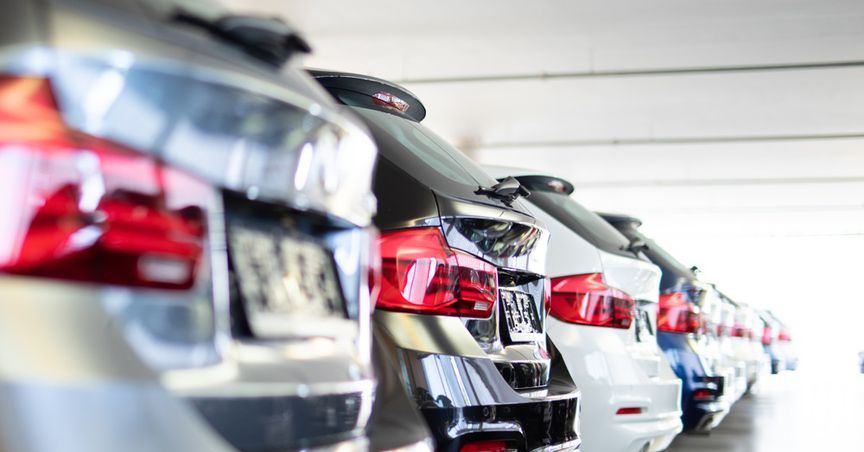Summary
- Official announcement expected within a week’s time, according to sources
- Fossil fuel based car makers to face a narrowing window for their existing products
- Electric vehicles market to get a boost
UK Prime Minister Boris Johnson would soon be announcing a ban on new cars running on petrol and diesel from the year 2030, according to media sources. Earlier the ban was to be introduced from 2035.
In fact, this has followed the PM moving the cut-off date from 2040 to 2035 in February this year.
The ban on petrol and diesel cars is part of a plan to reduce greenhouse gas emissions by the country. The move is likely to have huge repercussions for manufacturers and sellers of petrol and diesel cars across Britain.
On the other hand, the environmental groups have greeted the news warmly. According to them, such a policy would help the nation achieve its climate change goals on time including the reduction of greenhouse gas emissions to net zero by the year 2050.
Johnson would be giving a speech on the environment policy in the coming few days where he is expected to make the announcement. Government spokeswoman declined to comment on the news.
Sources also cited that the timetable might not be applicable to hybrid cars that use a mix of electric and fossil fuels. They could be allowed to be sold till 2035.
Cars running on petrol and diesel accounted for close to 74 per cent of new car sales in the UK for 2020 so far, according to industry estimates. Electric vehicles accounted for 6 per cent of the total car sales. Hybrid vehicles made up for the rest of the car sales for the same period.
The car makers
The UK car industry is already struggling on various fronts. First, the sales are down due to the disruptions caused by the pandemic.
Second, a no deal Brexit may cause car prices soar by close to £2,800 that might put brakes on the growth of the industry. There would be an added 10 per cent tariff on cars traded between Britain and the European Union.
Third, once this fossil fuel based vehicle ban announcement comes forth, the car makers would be facing a narrowing window for their existing products.
Mike Hawes, chief executive, SMMT has said that such a timescale could be insufficient for the industry to transition smoothly. It could threaten the viability of many companies in the auto and auto ancillary sectors, he stressed.
Electric cars
The move is going to benefit the electric cars market. While the sale of electric cars has been rising at a good pace in 2020, these cars continue to remain more expensive than a petrol or diesel variant. The gap between an electric and a fossil fuel-based car is as much as £10,000 at present.
At the same time, there have been some positive developments as well. Despite using an expensive technology, the prices of electric cars are seen to be declining gradually.
Moreover, the charging infrastructure for electric vehicles is also improving day by day. The number of rapid charging sites are on the rise including a higher number of homes being constructed that have an inbuilt charging socket for them.
The electric cars market is at a nascent stage in the UK and has an immense potential going forward. During the month of October 2020, the electric cars constituted 7 per cent of the total number of vehicles bought in Britain, according to latest estimates from the SMMT (Society of Motor Manufacturers and Traders).
The national automobiles association had requested the government to provide incentives for purchasing electric vehicles. It had also requested for setting up a charging infrastructure goal. SMMT pointed out that higher prices and a lower number of charging points were keeping the sales of electric vehicles down in the nation.
If media reports are to be believed, the UK government would be providing funds worth £500 million in 2021 towards building charging infrastructure.
Climate change
The environment activists insist that no matter how quickly the zero emissions are reached, the climate crisis and its impact are here to stay.
The UK PM is putting together a ten-point agenda to reach the low carbon targets and meet the aim of net zero emissions by 2050. The country would be hosting the UN summit on climate crisis in November 2021.
Earlier there was criticism that the country was not adequately funding its climate change initiatives. For instance, the Institute for Public Policy and Research said that the government was spending merely 12 per cent of funds required to address the climate crisis.
The phasing out of vehicles using fossil fuels is an important part of the fossil fuel elimination process. The other one is replacing fossil fuel based electricity plants with renewable ones.
One of the unintentional side effects of the phasing out of fossil fuel based automobiles is going to be dumping of second hand vehicles, especially in the developing nations.




